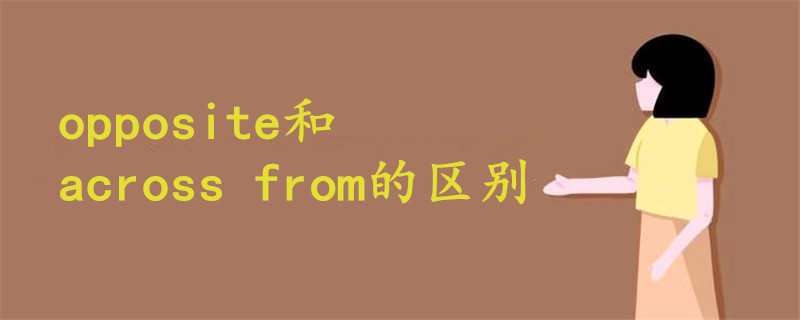opposite和across from的区别:含义不同、用法不同。opposite可作形容词、名词、介词和副词,基本含义有“对面的、相反的、对立的人或物、与……相对、在对面”;而across from作为短语,含义为“在…另一边”,是指地理位置,后面常接地点。

一、opposite的中文含义及用法介绍
1、作为形容词时,意为对面的;另一边的;相反的;迥然不同的。
例句:Answers are given on the opposite page.
答案在对页上。
He sat down in the chair opposite.
他在对面的椅子上坐了下来。
I watched them leave and then drove off in the opposite direction.
我目送他们离开,然后开车向相反的方向驶去。
2、作为名词时,意为对立的人(或物);对立面;反面。
例句:Hot and cold are opposites.
热和冷是对立面。
Exactly the opposite is true.
事实恰恰相反。
3、作为介词时,意为与…相对;在…对面;与…合演;与…联袂演出。
例句:Write your address opposite your name.
在姓名旁边写上你的地址。
She starred opposite Tom Hanks.
她与汤姆汉克斯联袂主演。
4、作为副词时,意为在对面,对过。
例句:He sat down in the chair opposite.
他在对面的椅子上坐了下来。
The post office is just opposite my house.
我家对过儿就是邮局。
二、across from的含义及用法
across from作为短语,含义为在…的对面;在…另一边。
例句:There's a school just across from our house.
有一所学校就在我们房子对面。
An ugly shopping centre stands across from one of the few buildings with character.
一座难看的购物中心对面,耸立着为数不多的几幢别具特色的大楼之一。










